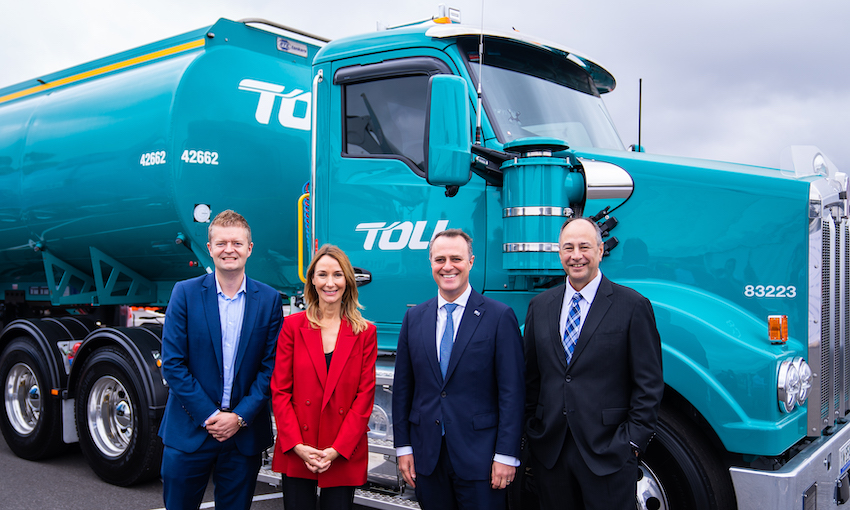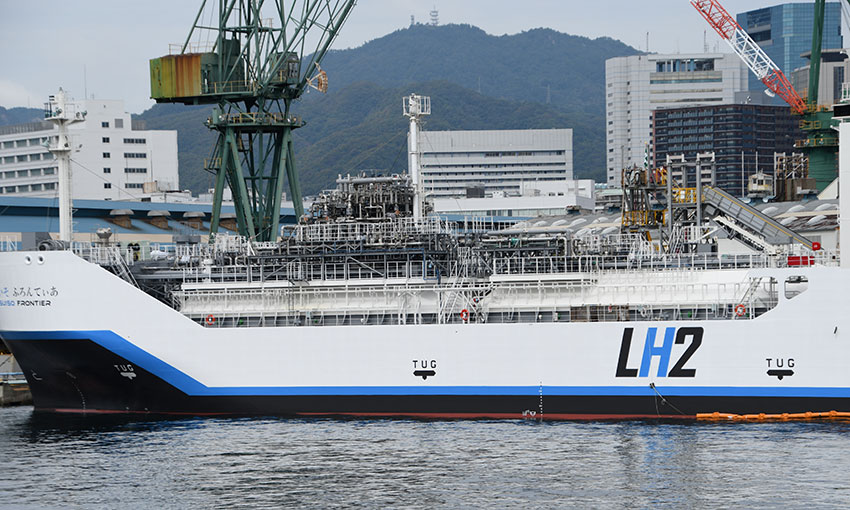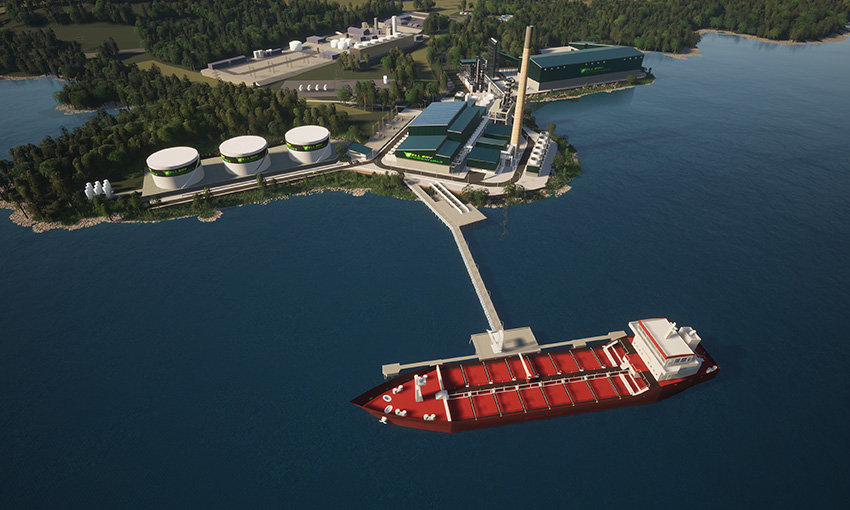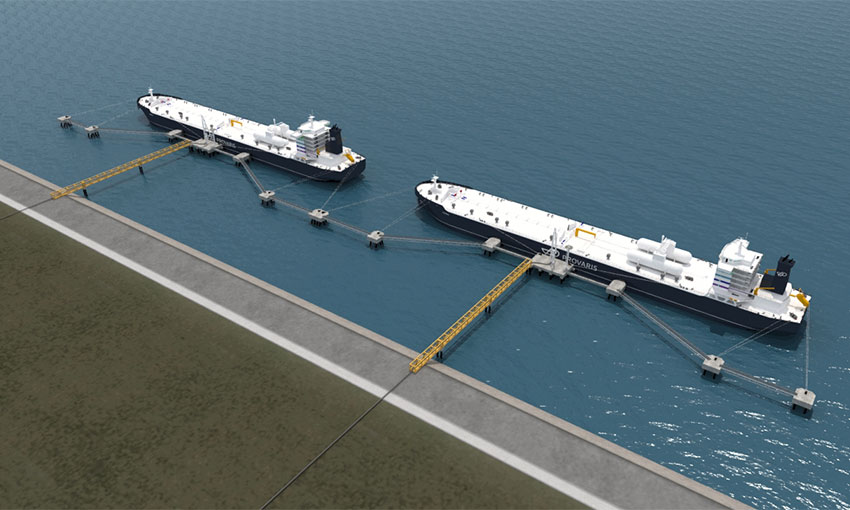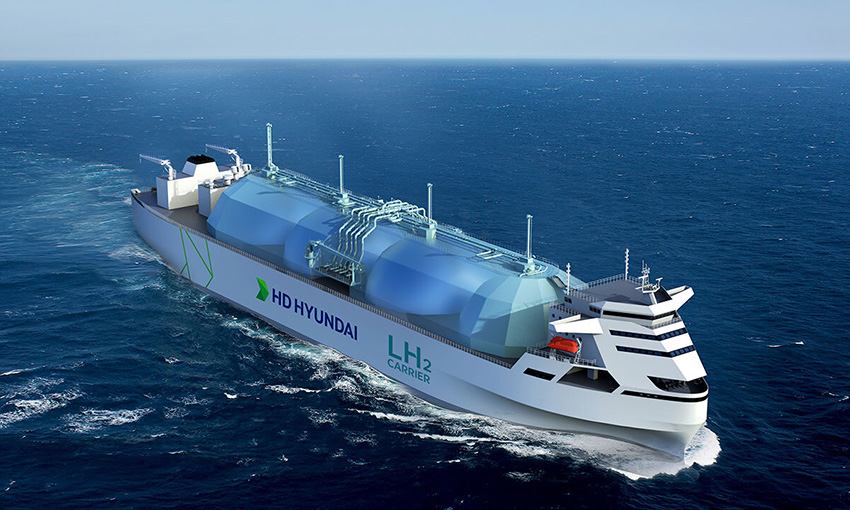TOLL Group has partnered with Viva Energy Australia to supply renewable energy to the transport industry under a new hydrogen mobility project.
The project involves the development of a New Energies Service Station in Geelong, which will become Australia’s first publicly accessible, dedicated heavy vehicle hydrogen refuelling station.
The facility is expected to commence operations in 2023, bringing together zero emission technologies to support Australia’s energy transition.
Assistant minister to the federal minister for industry, energy and emissions reduction Tim Wilson said the Viva Energy project is an opportunity to drive early uptake of commercially viable hydrogen electric vehicles in the transport industry.
“Freight transport is a stubborn source of Australia’s emissions that will only be cut through technology solutions which ensure that fresh food, packages and products can be delivered,” he said.
“Hydrogen has the potential to be that technology solution.
“This hydrogen fuel station will be the first of many that empower the freight sector to be part of the solution to carbon neutrality by 2050.”
Toll Group said it hopes the project will become a catalyst for a network of hydrogen refuelling stations from Geelong to Sydney and onto Brisbane.
“We’re proud to lead the industry and partner with Viva Energy to develop the future of zero-emissions transport for heavy vehicles,” Toll Group managing director Thomas Knudsen said.
“We believe in the potential for hydrogen to deliver a carbon free energy solution for the transport industry and this project is our first step on this journey.”
Toll Group will provide two hydrogen-powered prime movers deployed for the delivery of Viva Energy liquid fuels to its customers across south western Victoria.
The project was partially funded by a $22.8 million grant through the Australian Renewable Energy Agency (ARENA).
According to ARENA, the advantages of locating the project adjacent to Viva Energy’s Geelong refinery include proximity to major arterial roads, and access to a nearby water recycling plant for the production of hydrogen.
ARENA CEO Darren Miller said the project will help accelerate commercialisation pathways for full cell electric vehicles in heavy fleets.
“We’re excited to be working with Viva Energy to build Australia’s first publicly available hydrogen refuelling station to independent fleets,” he said.
“The experiences of Viva Energy and fleet vehicles using the renewable hydrogen produced onsite for refuelling will provide valuable insights into the operation of different types of hydrogen FCEV heavy vehicles.
“This project will be a key opportunity for early uptake of commercially viable hydrogen and a service station model that could be replicated across Australia as the price of electrolyser technology drops.”
Viva Energy CEO Scott Wyatt said the funding has enabled the company to work with long-term customers to demonstrate the role hydrogen will play in the future of transportation in Australia.
“This project puts hydrogen-powered vehicles on the road to prove their value in day-to-day commercial operations while reducing the carbon footprint of the heavy vehicle transport we rely on every day,” he said.
Mr Knudsen said the Victorian government had also contributed to the project, providing $1 million to the infrastructure build of the project.
“Collaboration between government and industry is the best way to advance Australia’s renewable energy goals and for industry to reduce their carbon footprint,” he said.

